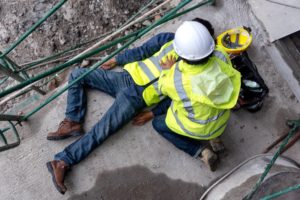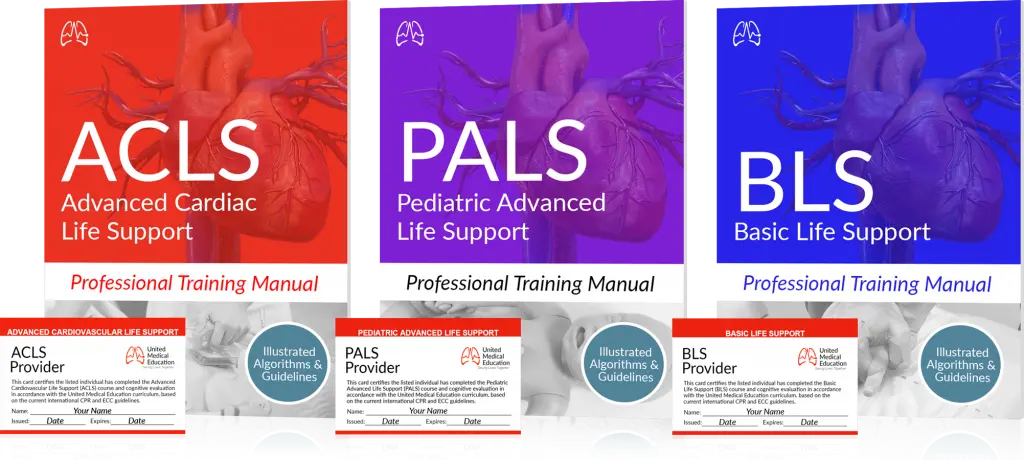Building Safety on Site: CPR, AED, and First Aid for Construction Workers

As an electrician-in-training, Gus was on a home building assignment. The day was extremely hot, and he was fitting a light fixture. However, sweaty hands caused him to lose grip of his screwdriver, which came into contact with a live wire. The resulting electric shock sent him falling back. Another construction worker who was nearby quickly came over to help him. Remembering his first aid lessons, he kept his distance and disconnected the main power before touching Gus. Finding Gus conscious but disoriented, the construction worker dialed for medical assistance and stayed with Gus till paramedics showed up.
Standing on a construction site, feeling the hum of machines, and crunching gravel under your feet is not a regular workplace experience. Amid the brotherhood and thrill, danger is ever present. Safety is essential on-site, and that’s where skills in First aid, CPR, and AED become crucial.
The Fundamentals: CPR, AED, and First Aid
Safety discussions begin with the basics – CPR AED and First Aid training, the three pillars of emergency response during injury or sudden illness.
The terms CPR (Cardiopulmonary Resuscitation), AED (Automated External Defibrillators), and First Aid are more than just buzzwords or certificates to display. They’re potentially lifesaving skills in critical situations. A memorable moment was when my CPR training allowed me to assist a colleague who caved in to heat exhaustion. The painful minutes before the ambulance’s arrival seemed like an eternity, but I was able to keep him stable with my training.
CPR for Construction Workers: Value and Methodologies
As construction workers, danger isn’t a stranger. But having CPR knowledge? That’s a lifesaver, a hidden ace. A wonderful advantage.
Consider this scenario. Logan was working under a steel beam being lifted. Suddenly, the rigging gave way, causing the beam to swing and hit him on the head, knocking him down. His coworker, Sanchez, saw the whole scene and immediately ran to his aid. Recently trained in CPR and first aid, Sanchez knew better than to remove Logan’s hardhat, potentially keeping a wound intact. Sanchez alerted emergency services and monitored Logan’s vital signs till they arrived.
In another scenario, Carlos had decided to forgo lunch and fix a window when he suddenly fell to the ground. A few of his coworkers who were returning to the site saw him and rushed to his side. One of them called 911, while another brought the AED. His co-worker, Boris, started performing chest compressions. Once the AED arrived, he performed and followed all the procedures and administered the appropriate shocks. He then continued with CPR until the emergency service arrived.
AED Application in Construction Sites

Ever seen a cardiac arrest? Trust me, it’s a sight you’d rather not witness. It’s frightening and confusing, with every moment precious. That’s where AED comes to the rescue.
The Automated External Defibrillator (AED) is a compact device delivering electric shocks to restore a regular heart rhythm. It’s simple to use, equipped with easy instructions, and can be a lifesaver during sudden cardiac arrests.
Larry was at the steering wheel of a bulldozer when he collapsed. His coworker, Min, spotted this and sprang into action. Trained in first aid, Min dialed 911 first and asked another worker to get the AED. He moved Larry to a safe spot, started chest compressions, and waited for the AED. Once it arrived, he attached the pads, let the AED assess Larry’s heart rhythm, and administered a shock as instructed. He then rechecked Larry’s vitals and continued CPR until medical assistance arrived.
When Marvin collapsed while digging a trench, his untrained coworker panicked and didn’t know how to respond. He did call for help, but without knowledge of CPR or AED use, he couldn’t do much for Martin. Thankfully, the ambulance arrived on time and Marvin received the necessary help. However, this incident proved the importance of training in CPR, AED, and First Aid training to the workers.
First Aid Measures for Common Construction Site Injuries
Construction sites are filled with potential injuries, ranging from minor cuts and scrapes to severe falls or burns. Immediate first aid knowledge is vital.
Every construction worker should be equipped to handle common site injuries. This could involve cleaning and dressing a wound, stabilizing a sprained ankle, or even offering support during a major injury while awaiting professional medical assistance.
On a demolition site, Dominic was taking out an old window when the glass broke, cutting his hand. The cut was deep and he bled profusely. The site’s first aid kit was immediately put to use by the supervisor. She cleaned the wound with warm water and soap, applied an antibiotic cream, and dressed the wound with a fresh bandage. She then advised Dominic to seek professional medical help to prevent possible infection from the glass shards.
Peter, a carpenter, accidentally shot his nail gun into his leg. His partner, Luke, came to the scene quickly when he heard an agonizing scream and sprung into action. He knew better than to remove the nail and called 911. He then assisted Peter in sitting down and elevating the wound. He used a clean cloth to apply pressure around the nail to stop the bleeding till medical help arrived.
Training and Certification: Promoting Safety On-site
CPR, AED, and first aid training and certification aren’t just add-ons for construction workers – they’re vital.
A comprehensive training program empowers workers with knowledge to effectively respond in emergencies, fostering an environment of safety. This training is made accessible through organizations like United Medical Education, providing affordable training and free practice tests for final exams to those with a free student account.
Creating a Safer Construction Site

Ultimately, it’s all about making a safer construction environment. Every construction site is like a puzzle, with its workers being the most crucial pieces.
First aid, CPR, and AED skills aren’t just for health professionals. They’re essential for anyone wanting a safer construction site. With the right training and these skills, construction workers transform from mere builders to lifesavers. After all, safety is a group effort, and every worker plays a vital role.
Contact author:
bclark@acls-pals-bls.com





